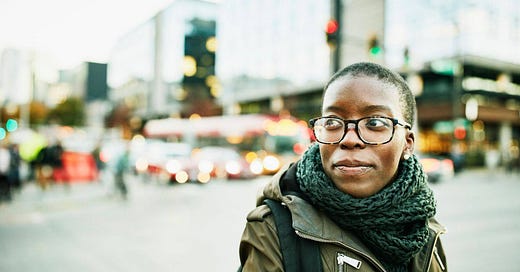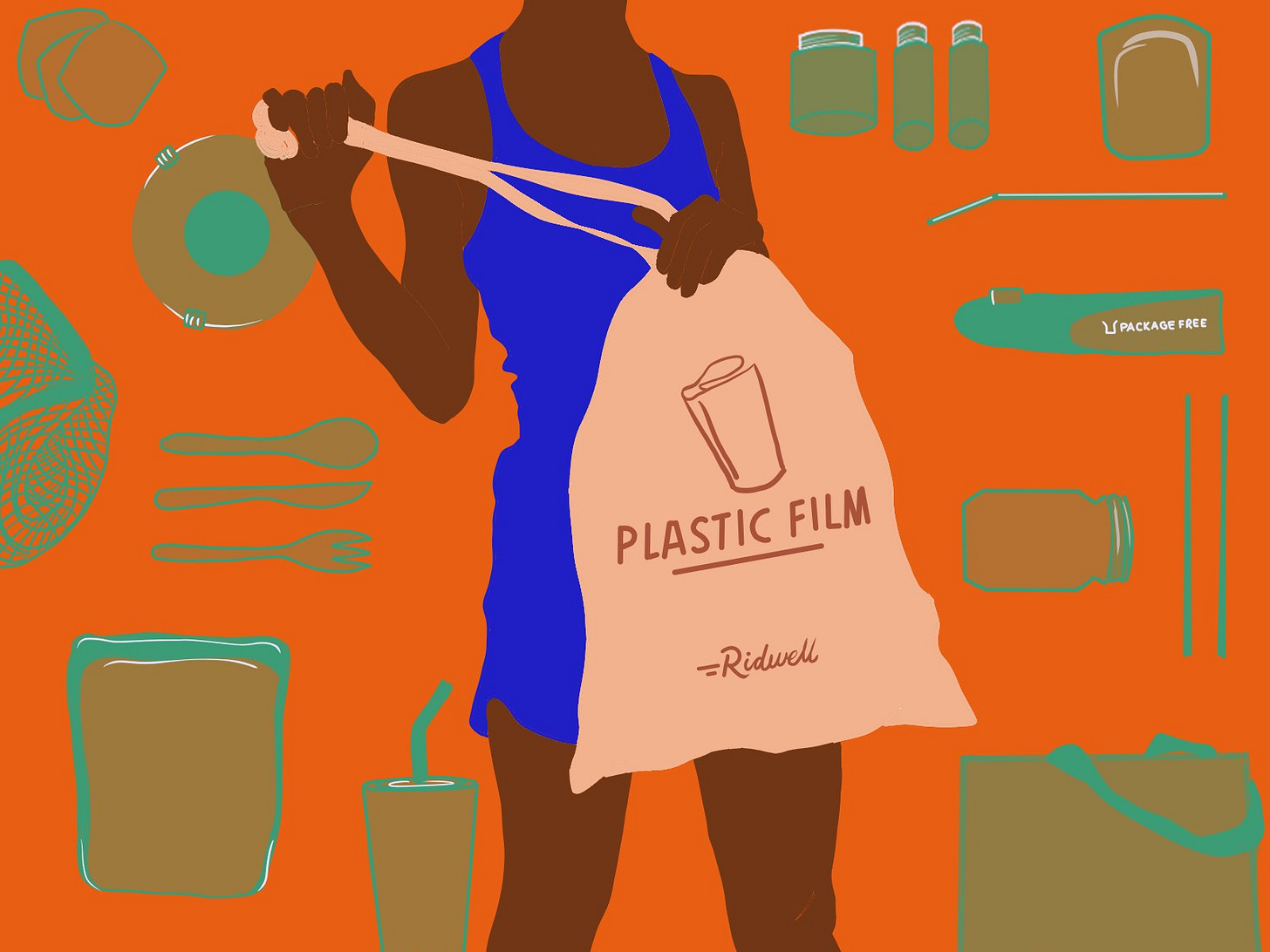Transformative lessons I’ve learnt while switching to zero-waste
Moji Igun has spent the past five years cutting landfill waste out of her life. She tells us what it’s really like to exist outside of a waste system many of us rarely question.
Zero-waste living, where people follow a set of principles with the ultimate aim of sending as little to landfill as possible, has exploded in popularity within the past decade. Analysis from Google Trends shows interest in the topic began to rise exponentially in 2010. It reached its peak in 2019 just before the pandemic started.
Moji Igun is a founder, speaker and writer who has lived as close to zero waste as possible for around five years. She tells us what she’s learnt.
When did you make the jump, and what did you notice straight away?
I first heard the term ‘zero waste’ around 2016 at the height of the viral mason jar era of the movement. This was the first time in my adult life that I was forced to confront the impact my consumer choices had on the world around me.
I was used to choosing the cheapest and most affordable option, rather than taking a critical look at the consequences of my personal patterns of consumption. My initial attempts to avoid sending anything to landfill provided me with a new perspective on the world.
It occurred to me that, while the materials we decide no longer have a useful purpose have always been burned, buried, hauled away, or returned to the earth, this is happening terrifyingly quickly now. Our economic system now depends on the constant pursuit of more.
The way in which we treat both materials and living beings as disposable is entirely unsustainable. I had been thinking about zero waste in terms of the end of an item’s life cycle – but realised so much of the approach was about the beginning (making the decision to purchase) as well.
Is it *really* worth going to so much effort as an individual?
It can certainly feel like our actions are insignificant. With the majority of harm stemming from a small yet powerful group of people, individual actions alone cannot adequately address the climate crisis.
However, I firmly believe that cultural resets sprout from the internal shifts that occur within each of us.
Other popular lifestyle movements like minimalism, conscious consumerism, and slow living have grown in popularity alongside zero waste. If the term ‘zero waste’ fails to inspire action for you, leave it behind and find an ideology that does. Ultimately, the goal is to resist the tendencies of a world whose hunger for more can never be satisfied.
What are the main positives you’ve experienced?
Zero waste has led me to practice growing my own food. I’ve begun to learn more about the plants and animals in my area. I’ve also grown more interested in studying the lessons from my own Indigenous ancestors (the Yoruba from West Africa).
I also get to work with businesses to co-create solutions that will make it easier for us all to make sustainable choices – and shift towards a more circular economy. Whether I’m performing a trash audit, creating educational resources, or playing around in the dirt, I’m repeatedly reminded that beauty can and will emerge from decay.

What do you hope society’s relationship with waste will look like in the future?
Right now, total zero waste living is impossible. Trash is baked into our system, to the point where sending items to the landfill is more economical than sending them to be repurposed. For the moment, strategically implementing local solutions – which allow us to thrive and meet our most basic needs – is key.
Further on, corporations and individuals alike need to work towards a truly circular economy. A circular economy shifts the norm away from constant extraction to one of circulating material flows, built on the foundation of renewable energy.
This model goes far beyond recycling and includes resource sharing, repair, reuse, and more. This circular way of thinking stems from Indigenous practices that call for us all to tune in to our relationship to the land and life around us.
Moji Igun is the founder of Blue Daisi Consulting.




